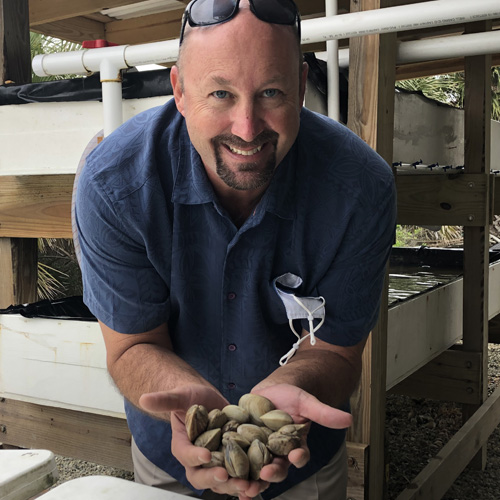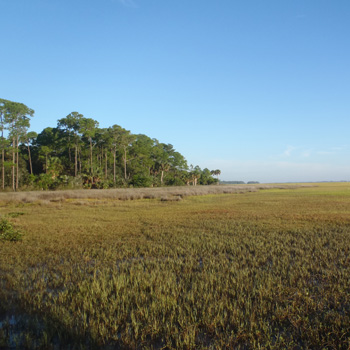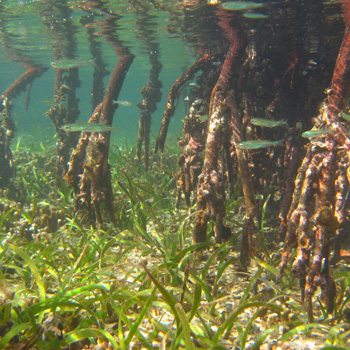TODD Z. OSBORNE, PH.D.

Todd Osborne, Ph.D.
Associate Professor of Biogeochemistry
Wetland Biogeochemistry Laboratory
Research Areas
- Soil Quality/Ecosystem Services
- Soil/Landscape Analysis
- Wetlands and Aquatic Systems
Email: osbornet@ufl.edu
Research Focus

Marine and Coastal Ecology Program at Whitney
Dr. Todd Z. Osborne, Assistant Professor in the Wetland Biogeochemistry Laboratory, has a diverse research program focusing on biogeochemical processes in soil and water in a variety of ecosystems throughout Florida. Currently, Dr. Osborne is highly engaged in Everglades restoration science with several projects investigating biogeochemical cycling of phosphorus, sulfur and carbon within the Greater Everglades. These research initiatives include fire effects on biogeochemical cycling of phosphorus and impacts to water quality and exotic species, sulfur biogeochemistry and relationships to mercury and phosphorus mobility in Everglades soils, and spatial variability of soil nutrients at the landscape scale. Other Everglades research currently being conducted in Dr. Osborne’s program includes conservation of the ridge and slough landscape mosaic in the central Everglades via research on hydrologic modulators of plant productivity and community structure. Collaborative efforts with Dr. Matt Cohen (SFRC) and Dr. Mark Clark (SWS) have led to interesting new findings concerning alternative stable state theory with respect to south Florida wetlands (Watts et al. in review). Recently completed work on nutrient gradients in the Taylor Slough basin of Everglades National Park have also gained the attention of ecologists and Park Service land managers, resulting in new theories concerning nutrient cycling at the landscape scale in Everglades restoration science.

Coastal Ecosystems
While the Everglades are a focal point of Dr. Osborne’s current research, he is also very active in coastal ecosystem research dealing with sea grass and mangrove habitat restoration and mitigation. Collaboration with Dr. Rex Ellis (SWS) has been very successful in opening new opportunities in coastal and marine ecosystem sciences to the Soil and Water Science Department. Currently, Dr. Osborne is involved with several research projects with Dr. Ellis concerning subaqueous soils in near shore marine habitats. These research projects include mangrove and sea grass habitat restoration in the Indian River Lagoon, Lake Surprise (Key Largo), and intensive soil studies on Cedar Key hard clam aquaculture leases. These projects allow for a novel application of soil science to new ecosystems with a multidisciplinary approach to fundamental questions concerning Florida’s extensive coastal resources.

New Research Directions
New research directions include investigations into sea level rise and soil carbon storage, wetland fire frequency and exotic/ invasive vegetation responses, and salt marsh restoration in coastal Florida and Georgia. All of the aforementioned research efforts require a great deal of time in the field, which often provides the stimulus for new ideas and research directions. On the topic of field research, Dr. Osborne commented, “My research interests afford me the incredible opportunity to visit some of Florida’s last wild places and see firsthand, biogeochemistry at work in shaping Florida’s beautiful, unique, and infinitely valuable ecological resources. These research endeavors often require getting my feet on the ground in the field to make critical observations…..however, that ground is often under several feet of water!”